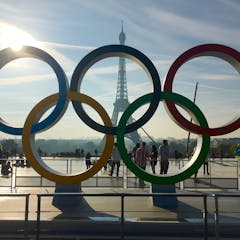
Articles sur Gaza
Affichage de 81 à 100 de 428 articles

Humanitarian workers are protected by international law, but the number of aid agency workers being killed around the world is growing.

The UK government has received advice that Israel is breaking international law in its assault on Gaza, so has an obligation to stop supplying it with arms.

The government’s rhetoric in response to the death of the Australian aid worker is stronger than we’d previously seen, but in a conflict with no clear solutions, little will change.

Aid workers used to be considered off-limits in conflicts. The deaths of 7 aid workers in Gaza show that’s not the case anymore. Attacks on aid workers are on the rise.

Over nearly five decades of enmity, Tehran and Washington have found common ground when they needed to.

This isn’t the first time the US military has turned to building a pier to help reach people during times of war or other crises.

If the world sits on the sidelines for the next six months, it not only loses time and ground but puts Trump in a stronger position if he is elected.

For centuries, colonial powers have used starvation as a tool to control Indigenous populations and take over their land and wealth. A look back at two historic examples on two different continents.

A Christian Palestinian human rights scholar who grew up in Bethlehem writes about the special time of Easter, but also about the restrictions on Palestinian Christians.

Though the resolution is binding, it is not enforceable under international law. This leaves the work to international negotiators to hammer out the details of an agreement.

The situation in Gaza grows more desperate by the day.

The deep connection of homes in Gaza to Palestinian land, territory and nationhood makes Israel’s destruction of them a genocidal tactic.

The destructive force that Israeli leader Benjamin Netanyahu has unleashed in Gaza is rooted in a century-old ideology that says overwhelming power is how Israel should deal with Palestinians.

Biden is unlikely to cut Israel off altogether but a remarkable change has taken place.

A second Donald Trump presidency would not necessarily implement a foreign policy any more destructive than what is normal for the United States.

We speak with Hilal Elver, the former UN Special Rapporteur on the Right to Food and current University of California professor about the looming famine in Gaza after months of Israeli attacks.

A repeat of the Berlin airlifts of 1948 and 1949 would require a unity of political will that doesn’t exist in the west – at least, not yet.

What is happening in Gaza is not simply a settlement issue. There are Israeli economic interests at stake.

The anonymous artists and activists behind no-photo2024 are highlighting the exclusion of Palestinian photographers from PHOTO2024.

The Olympic Games have also been highly political events – Paris 2024 will be no different.
